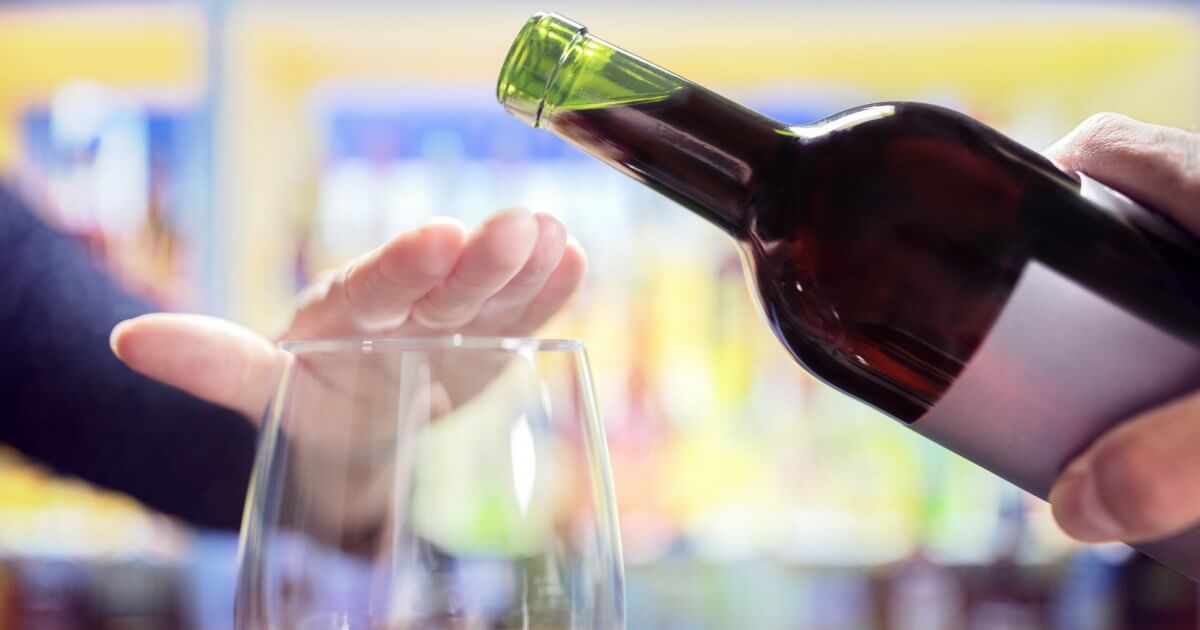Alcohol and Cancer
- A new study promotes the well established link between alcohol consumption and increased cancer risk, but it also says people who “reduced their alcohol consumption” had a lower risk of developing cancer.
- This is not the first study to link alcohol consumption to cancer risk. For cancers of the mouth, throat, voice box and esophagus, for example, alcohol "clearly" increases risk, according to the American Cancer Society, and we know other cancers are linked to alcohol consumption as well like breast, liver and colorectal cancers.
- Oncologists say moderate alcohol consumption is an answer for people looking to balance cancer risk with the enjoyment they get from drinking.
According to a study published in August in the JAMA Network Open, people who “increased their alcohol consumption had a higher risk for alcohol-related cancers and all cancers compared with those who had sustained levels of drinking” and people “who reduced their alcohol consumption had a lower risk.”
Read MoreLinking Alcohol Consumption to Cancer
According to the American Cancer Society, alcohol consumption can increase your risk for many different types of cancer. Considering cancers of the mouth, throat, voice box and esophagus, for example, alcohol "clearly" increases risk. That being said, the ACS notes that drinking and smoking together puts you at a much higher risk for these cancers than drinking or smoking alone.
"This might be because alcohol can help harmful chemicals in tobacco get inside the cells that line the mouth, throat, and esophagus," the ACS website states. "Alcohol may also limit how these cells can repair damage to their DNA caused by the chemicals in tobacco."
RELATED: Alcohol Can Cause Cancer So Why Don't Beer, Wine, Whiskey and Other Booze Labels Warn Us?
When it comes to liver cancer, "long-term alcohol use has been linked to an increased risk." When you regularly drink a lot of alcohol, liver damage can occur and lead to inflammation and scarring a possible explanation for the increased risk.
We also know there's a clear link between breast cancer and alcohol consumption. In November 2017, the American Society of Clinical Oncology published a statement citing evidence that links alcohol to multiple cancers and calling for reduced alcohol consumption as a way to cut people's cancer risk. But many women said they had been drinking more during the pandemic, and 70 percent weren't aware of the resulting increased cancer risk, according to SurvivorNet survey in February 2021.
Alcohol Can Increase the Risk of Developing Breast Cancer
In a previous interview with SurvivorNet, Dr. Elizabeth Comen, a medical oncologist at Memorial Sloan Kettering Cancer Center, said that every drink consumed increases cancer risk.
"What that means is a linear response to risk, meaning that each drink increases a woman's risk for breast cancer. So binge drinking, it's not good for anybody," she said. "And it's also not good for a woman's increased risk of breast cancer."
For colon and rectal cancer, the ACS reports that alcohol use has been linked with a higher risk of cancers of the colon and rectum with stronger evidence for this in men than in women, though studies have found the link in both sexes.
Does Alcohol Impact the Risks for Colon and Other Cancers?
Dr. Heather Yeo, a colorectal cancer surgeon at New York Presbyterian/Weill Cornell Medical Center, said she believes alcohol increases risk for certain cancers but acknowledged that the data was mixed, especially for colon cancer.
"I do think that high levels of alcohol certainly predispose to a certain number of cancers, including pancreatic and liver cancer, and may predispose to colon cancer," she said. "But there's also some data that shows that low levels of alcohol, or a glass of wine here and there, may actually lower your risk of colon cancer."
Perhaps 'In Moderation' Is the Motto
It's important to note that alcohol consumption may increase the risk of developing these cancers, but it doesn't necessarily cause these cancers. That being said, it's hard to know what to do if you're concerned about your alcohol intake increasing your risk of various cancers.
Dr. Elizabeth Comen acknowledges the mixed messages coming from the healthcare community regarding alcohol consumption.
"I think we've probably been getting the public mixed messages about alcohol," Dr. Comen said. "In some instances, we say that drinking wine might be good for the heart, and we don't necessarily offer great specific guidelines about how much alcohol is safe to drink."
Dr. Comen's advice isn't to necessarily stop drinking altogether. She just wants people to think about moderation and own the decisions they make.
"Patients ask me this all the time, 'Well, how much can I drink?’" she said. "If you want to have absolutely no risk from alcohol, then don't drink at all. But probably having less than four glasses a week of alcohol is probably OK."
Dr. Heather Yeo also stressed the importance of moderation.
"For women, anything over a half a glass or a glass a day is probably not helping your overall health," Dr. Yeo said. "For men, they can probably go one to two glasses before they start seeing health effects."
Learn more about SurvivorNet's rigorous medical review process.


